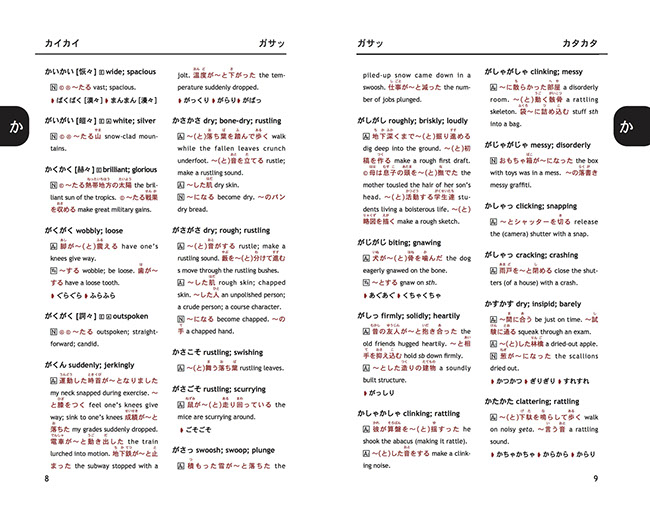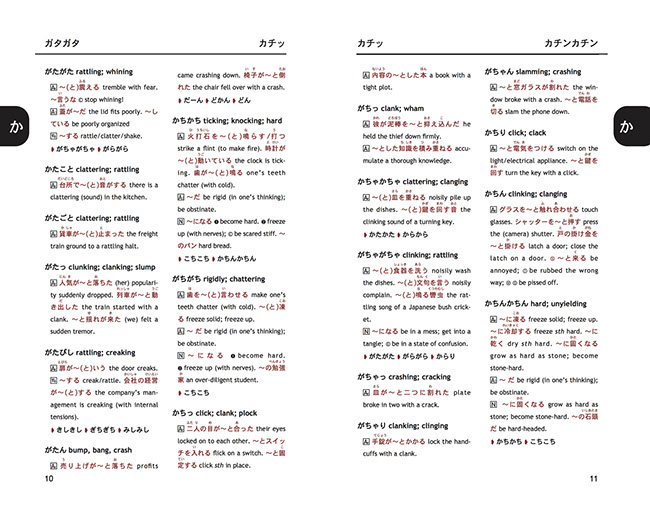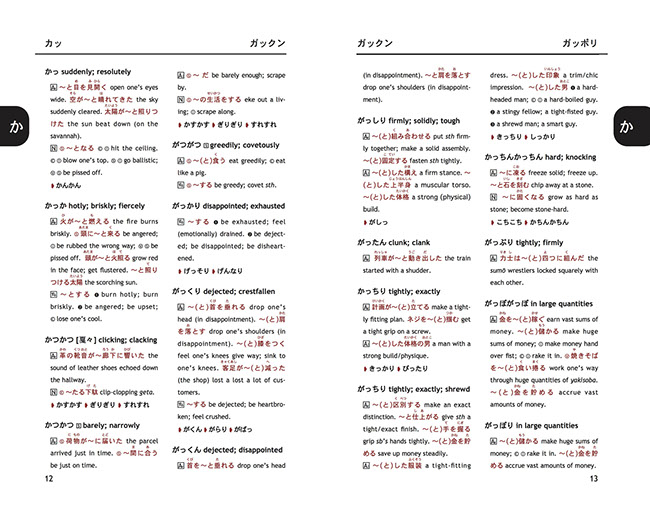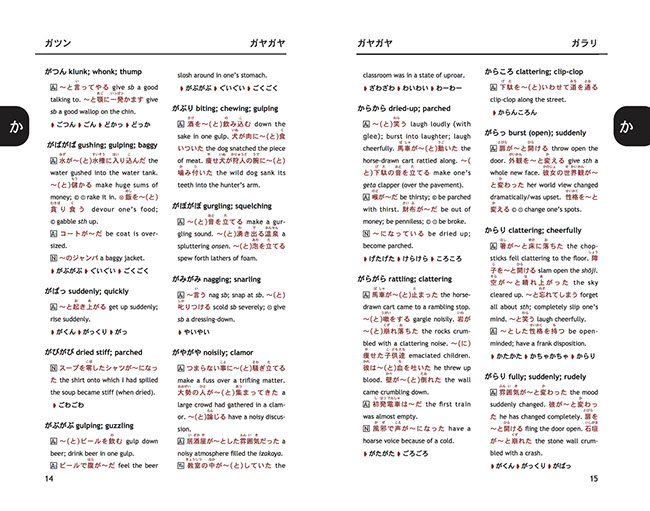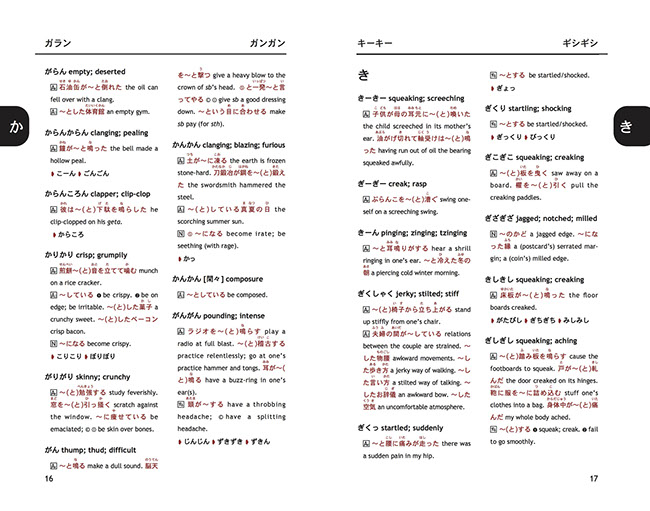"Twenty years from now you will be more disappointed by the things
that you didn't do than by the ones you did.
So throw off the bowlines.
Sail away from the safe harbor.
Catch the trade winds in your sails.
Explore. Dream. Discover.”
— Mark Twain
TOYO PRess

Explore
Dream
Discover
1000 Japanese Onomatopoeia
By William de Lange
To any student of the Japanese language, the staggering number of onomatopoeia seems so daunting that one simply does not know where to begin. What, for instance, to make of karakara, karikari, kurikuri, or korikori? They may sound pretty similar, but to the Japanese ear they carry a wealth of information, modulated by emphasis, context, and grammatical function. Thus karakara can be used to describe someone laughing loudly, a vehicle rattling along, being parched with thirst, or being out of money. Meanwhile karikari has the distinctly different meanings of being crispy, or being irritable. The same is true for kurikuri, which is used to describe either something fat and rotund, or round and lovable. Only korikori carries a similar meaning (to karikari) of being crunchy, but then more chewy.
This is the first comprehensive dictionary of Japanese onomatopoeia. Multiple English sample sentences highlight every meaning and nuance of expressions used by Japanese speakers of all walks of life—from hip youths in Roppongi to erudite professors at university.
138 pp, 6 x 9, Hard
Over 1000 entries, duo-tone print and thumb index
Japanese language / Reference
Hardcover ISBN: 978-1-891640-164


Language Series
Contact us
© TOYO PRess 2021 | as an amazon associate toyo press earns from qualifying purchases
